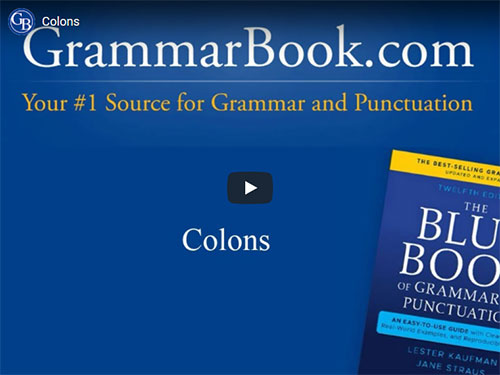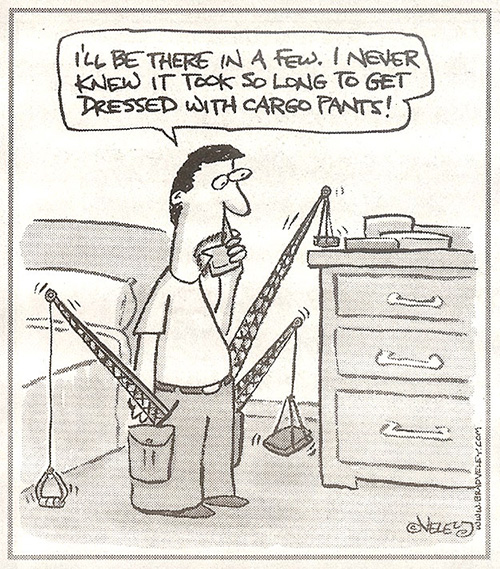|
Subjunctive Mood: What Is the Subjunctive Mood?
|
|
A GrammarBook reader came across this sentence: If I were very lucky, I would get the chance to go. She asked, "Shouldn't I be followed by was, not were, since I is singular?"
This type of question is common within English grammar, particularly because it walks the line between the conditional tense and the subjunctive mood when a dependent if clause is involved.
The difference lies in that the subjunctive mood in an if clause declares a wish or a supposition that is either impossible or highly unlikely.
The conditional tense, on the other hand, conveys a possible scenario with a plausible speculative result. (Note also that the conditional tense will always include an if clause; the subjunctive mood does not always include one, as we'll see in the next section.)
Examples
If I were a billionaire, I'd sail around the world for the next ten years. (subjunctive mood for a highly unlikely scenario; very slim chance of becoming a billionaire)
If she was a better listener, she would understand the details more clearly. (conditional tense for a possible scenario with a plausible speculative result; possibility of becoming a better listener) |
To indicate the mood it represents, the subjunctive alters proper verb conjugation. With the verb to be in a contrary-to-fact if clause, the subjunctive always uses the past tense were.
Examples
"If I were an Oscar Meyer wiener …"
If you were seven feet tall, you might be able to slam-dunk that basketball.
If Stephen were king of the world, he would make donuts free for everyone. |
What Is the Subjunctive Mood: Other Uses
The subjunctive mood also appears in other statements expressing a wish, demand, suggestion, or recommendation.
In these contexts, the subjunctive alters verb conjugation by dropping the -s from the third-person singular tense. If the verb is to be, the subjunctive uses the present tense be. If the verb already does not include the -s ending, as for you, there is no change.
Examples
She requested that he lower his asking price. (expressing a wish)
The school requires that Mary arrive at school on time. (expressing a demand)
Shane proposes that we be ready to modify the blueprints for the new shopping mall. (expressing a suggestion)
The fire department recommends that you test your fire alarms regularly to ensure they are properly working. (expressing a recommendation) |
What Is the Subjunctive Mood: It's Not the Conditional
Because the subjunctive and the conditional can be so commonly confused, it bears repeating what their difference is.
As we've discussed, the conditional tense conveys a possible scenario with a speculative result, and it will always include a dependent if clause.
The conditional tense also does not alter verb conjugation in the way the subjunctive mood does to indicate itself.
Examples
If he lowers the asking price, she will accept the deal.
If Mary arrives at school on time, she will not be marked as tardy.
If we are ready to modify the blueprints, we will save more time in the planning for the new shopping mall.
If you test your fire alarms regularly, you can ensure they are properly working. |
In light of what we've discussed, we can return to our opening sentence to determine if we should use the subjunctive mood or the conditional tense: If I was/were very lucky, I would get the chance to go.
What is the answer? It probably depends on how plausible—or not—you believe your luck can be.
|
View and comment on this
article on our website.
|
|
|

|
Pop Quiz
Now that you further understand what the subjunctive mood is, choose the correct verb in each of the following sentences.
1. If I [was / were] Superman, I could have won that race.
2. Management has required that we [be / are] at the party this weekend.
3. If she [was / were] truly your friend, she wouldn't talk behind your back.
4. Beth has proposed he [tries / try] a different approach.
5. If he [raise / raises] his hand, he will be the first one chosen.
|
 |
The Blue Book of Grammar and Punctuation
by Lester Kaufman and Jane Straus |
The Authority on English Grammar! Twelfth Edition Now Available
An indispensable tool for busy professionals, teachers, students, homeschool families, editors, writers, and proofreaders.
Available in print AND as an e-Book! Over 2,000 copies are purchased every month!
To order the book, simply click the link to order the book from the GrammarBook.com website.
|
Free BONUS Quiz for You!
[[firstname]], because you are a subscriber to the newsletter, you get access to one of the Subscribers-Only Quizzes. Click here to take an Adjectives and Adverbs Quiz and get your scores and explanations instantly!
We will be adding many more quizzes this year to our already substantial list of them. If you have suggestions for topics we have not yet covered, please send us a message at help@grammarbook.com.
|
Hundreds of Additional Quizzes
at Your Fingertips
Subscribe now to receive hundreds of additional English usage quizzes not found anywhere else!
Teachers and Employers
Save hours of valuable time! You may assign quizzes to your students and employees and have their scores tallied, organized, and reported to you! Let GrammarBook.com take the hassle out of teaching English!
"Fun to test my skills."
"The explanations really help ... thanks!"
"I can select the quizzes to assign to my students, and then the results are reported to me automatically!"
If you think you have found an error in a quiz, please email us at help@grammarbook.com
|
Wordplay

Pop Quiz Answers
1. If I were Superman, I would have won that race. (subjunctive: I am not and will never be Superman.)
2. Management has required that we be at the party this weekend. (subjunctive: expression of a demand)
3. If she was truly your friend, she wouldn't talk behind your back. (conditional: She could be your friend, but right now she is not.)
4. Beth has proposed he try a different approach. (subjunctive: expression of a suggestion)
5. If he raises his hand, he will be the first one chosen. (conditional: possible scenario with a plausible speculative result)
|
 |
English in a Snap:
68 One-Minute English Usage Videos FREE |
Learn all about who and whom, affect and effect, subjects and verbs, adjectives and adverbs, commas, semicolons, quotation marks, and much more by just sitting back and enjoying these easy-to-follow lessons. Share them with your colleagues (and boss), children, teachers, and friends as well! Click here to watch.
|
|





